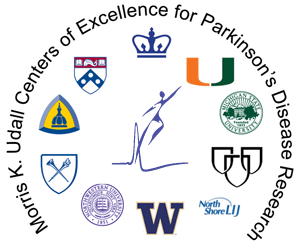Tags: 2014, 2013, University of Pittsburgh, Pennsylvania, Northeast, UPITT, BioResearch Product Faire Event, Research Funding, PA, Pittsburgh, laboratory equipment sales
The University of Pennsylvania’s Perelman School of Medicine announced the establishment of a new biomedical informatics program this March. The Institute for Biomedical Informatics (IBI) received founding support from the Smilow Center for Translational Research. According to Dr. J. Larry Jameson, dean of the Perelman School of Medicine, the Institute for Biomedical Informatics will "bring together the large number of Penn faculty who work in the broad field of biomedical informatics to inform science and medical care. We will expand the number of faculty even more to create a wide-ranging program of research and education to find and clinically apply the treatments of the future and to train the next generation of physician-scientists.”
Tags: 2014, 2013, Pennsylvania, Northeast, University of Pennsylvania, UPenn, Philadelphia, BioResearch Product Faire Event, Research Funding, PA, laboratory equipment sales
Lab scientists at the University of Pittsburgh Cancer Institute and UP's Center for Biologic Imaging have recently published an important paper in the Journal of Cell Science that sheds light on a novel method of interrupting mitosis in a cell by effectively depriving its mitochondria of a key protein. The resulting replication stress means cancer cells are stopped from successfully multiplying. Colorful images of the targeted cells actually show them stuck in anaphase trying to divide and subsequently tearing themselves apart. By identifying a compound that carries out this protein interference and disrupts normal mitochondrial fission, researchers have identified a promising therapeutic avenue for halting cancer growth.
Tags: 2014, 2013, University of Pittsburgh, Pennsylvania, Northeast, Hillman Cancer Center, cancer research, cell biology, Microscopy, UPITT, Cell Research, BioResearch Product Faire Event, PA, NIH, Pittsburgh, Northeast Region
Science researchers at the University of Pennsylvania conducted a study that may help them reach a better understanding of health conditions such as arteriosclerosis, aneurysms and thrombosis. The results of the study are making the news as one of a number of compelling current science events at the University of Pennsylvania. According to science researchers, blood plasma is thicker and more elastic than water. Depending on how much pressure blood plasma is under, it flows differently under different circumstances, meaning that blood plasma influences how blood flows more concretely than scientists thought in the past.
Tags: 2014, 2013, Pennsylvania, Northeast, University of Pennsylvania, UPenn, Philadelphia, BioResearch Product Faire Event, Research Funding, current science events, PA, NIH, science researchers, NSF, lab supplier
 Long considered one of the inferior senses, anyone who has lost their ability to taste as a result of age or cancer treatment will tell you life's luster is considerably dimmed in the absence of this sensory experience. Fortunately, research into taste and smell is going strong in Philadelphia at the Monell Chemical Senses Center, which is the only non-profit scientific basic research institute in the world dedicated entirely to understanding these intertwined senses. Once an entity within the University of Pennsylvania, the Center branched out on its own several decades ago, with labs a few blocks from the Penn campus on Market Street. Researchers at Monell work interdisciplinarily and many have joint appointments with Penn. Other research projects are carried out in conjunction with scientists at Thomas Jefferson University, also in Philly, and indeed with university and private lab investigators around the world.
Long considered one of the inferior senses, anyone who has lost their ability to taste as a result of age or cancer treatment will tell you life's luster is considerably dimmed in the absence of this sensory experience. Fortunately, research into taste and smell is going strong in Philadelphia at the Monell Chemical Senses Center, which is the only non-profit scientific basic research institute in the world dedicated entirely to understanding these intertwined senses. Once an entity within the University of Pennsylvania, the Center branched out on its own several decades ago, with labs a few blocks from the Penn campus on Market Street. Researchers at Monell work interdisciplinarily and many have joint appointments with Penn. Other research projects are carried out in conjunction with scientists at Thomas Jefferson University, also in Philly, and indeed with university and private lab investigators around the world.
Tags: 2014, 2013, Pennsylvania, Northeast, University of Pennsylvania, UPenn, Thomas Jefferson University, Stem cell research, taste buds, Monell Chemical Senses Center, Philadelphia, BioResearch Product Faire Event, PA, ThomJeff, taste
 In order for HIV to proliferate and infect new cells in the body, a number of proteins need to interact with each other in just the right way. If they don't, the virus is not able to multiply and spread, and HIV infection cannot develop into full-blown Auto Immune Deficiency Syndrome (AIDS). It's a case of finding a weak link and exploiting its potential to disrupt an entire supply chain. In the University of Pittsburgh microbiology lab of Dr. Thomas Smithgall, this protein sabotage approach has successfully allowed them to identify a helper molecule that, if compromised, could form the basis of an effective new HIV/AIDS treatment therapy. The paper documenting their research appeared in the January 24 issue of Chemistry & Biology.
In order for HIV to proliferate and infect new cells in the body, a number of proteins need to interact with each other in just the right way. If they don't, the virus is not able to multiply and spread, and HIV infection cannot develop into full-blown Auto Immune Deficiency Syndrome (AIDS). It's a case of finding a weak link and exploiting its potential to disrupt an entire supply chain. In the University of Pittsburgh microbiology lab of Dr. Thomas Smithgall, this protein sabotage approach has successfully allowed them to identify a helper molecule that, if compromised, could form the basis of an effective new HIV/AIDS treatment therapy. The paper documenting their research appeared in the January 24 issue of Chemistry & Biology.
Tags: 2014, 2013, University of Pittsburgh, Pennsylvania, Northeast, AIDS Research, Microbiology, UPITT, BioResearch Product Faire Event, PA, Pittsburgh
 The Parkinson's Disease Biomarkers Program (PDBP) is a recently-formed NIH initiative to advance research into biomarkers for the disease in order to better understand its progress and develop treatments. Some funded projects will focus on statistical analysis tools and data sharing among researchers. Others will examine early clinical manifestations of PD in patients. Still more will involve lab studies, including identification of genetic biomarkers as well as antibodies in the blood and changes in body chemistry. All projects "must inform the etiology, pathogenesis or treatment of PD," according to grant program guidelines. Research supported by the PDBP is being carried out at the 11 Morris K. Udall Centers of Excellence in Parkinson's Disease Research (logo right), directed by the National Institute of Neurological Disorders and Stroke (NINDS) within the NIH.
The Parkinson's Disease Biomarkers Program (PDBP) is a recently-formed NIH initiative to advance research into biomarkers for the disease in order to better understand its progress and develop treatments. Some funded projects will focus on statistical analysis tools and data sharing among researchers. Others will examine early clinical manifestations of PD in patients. Still more will involve lab studies, including identification of genetic biomarkers as well as antibodies in the blood and changes in body chemistry. All projects "must inform the etiology, pathogenesis or treatment of PD," according to grant program guidelines. Research supported by the PDBP is being carried out at the 11 Morris K. Udall Centers of Excellence in Parkinson's Disease Research (logo right), directed by the National Institute of Neurological Disorders and Stroke (NINDS) within the NIH.
Tags: 2014, 2013, Pennsylvania, Northeast, University of Pennsylvania, UPenn, Thomas Jefferson University, Parkinson's Disease Research, Biomarkers, Philadelphia, BioResearch Product Faire Event, Funding, Genomics, Neurology, NIH, Northeast Region, ThomJeff
With the advances in microscopy and digital imagery today, it's not unusual to find yourself looking at visual representations from the micro-world of the lab that are truly beautiful to behold, both for what they tell us about the science of life and on an aesthetic level as well. Some of the images might be said to qualify as art. In the case of Greg Dunn, PhD Neuroscience 2011 from the University of Pennsylvania, neural art has become his profession, and departments of neuroscience across the US have commissioned his large, metallic and ink visions for their offices, libraries, and reception halls. Influenced by Japanese art, completely self-taught, and still very much the scientist with his subject matter, Dunn's work is quite simply spectacular, and a great deal more than an homage to the neuron.
Tags: Pennsylvania, Northeast, University of Pennsylvania, UPenn, Thomas Jefferson University, 2012, Neuroscience, Philadelphia, BioResearch Product Faire Event, Front Line event, ThomJeff
 Chemical and biomolecular engineering researchers at the University of Pennsylvania have recently achieved something truly impressive: they've managed to dramatically improve the process of methane catalysis, by a factor of 30, and using lower temperatures. What this could mean in terms of environmental protection and energy generation is nothing less than game-changing. Natural gas production is at an all-time high in the U.S. and will replace much of our dependence on oil and coal if we can burn it efficiently and without methane pollution. Methane is also a by-product of industries such as waste management, animal farming, and oil extraction (the iconic flame at the top of an oil well is methane being released from underground), where its containment is an ongoing challenge.
Chemical and biomolecular engineering researchers at the University of Pennsylvania have recently achieved something truly impressive: they've managed to dramatically improve the process of methane catalysis, by a factor of 30, and using lower temperatures. What this could mean in terms of environmental protection and energy generation is nothing less than game-changing. Natural gas production is at an all-time high in the U.S. and will replace much of our dependence on oil and coal if we can burn it efficiently and without methane pollution. Methane is also a by-product of industries such as waste management, animal farming, and oil extraction (the iconic flame at the top of an oil well is methane being released from underground), where its containment is an ongoing challenge.
Tags: Pennsylvania, Northeast, University of Pennsylvania, UPenn, catalysts, nanotechnology, 2012, chemistry research, Philadelphia, BioResearch Product Faire Event, PA, BRPF
By now you've probably heard about 3D bio printing, a bioengineering technique for literally building functional replacement tissue and eventually organs. (Read an earlier blog of ours on the subject.) While still in the early stages of development in terms of actually producing a human organ for transplant, the technology is advancing and critical problems are being met with innovative solutions. In the July issue of Nature Materials, University of Pennsylvania scientists, in conjunction with MIT and Harvard researchers, published an article documenting their success creating a blood vessel network using sugar.
Tags: Pennsylvania, Northeast, University of Pennsylvania, UPenn, 2012, Cell Research, bioprinting, bio research, Philadelphia, BioResearch Product Faire Event, Research, Front Line event, PA, BRPF, scientist solutions, science solution

